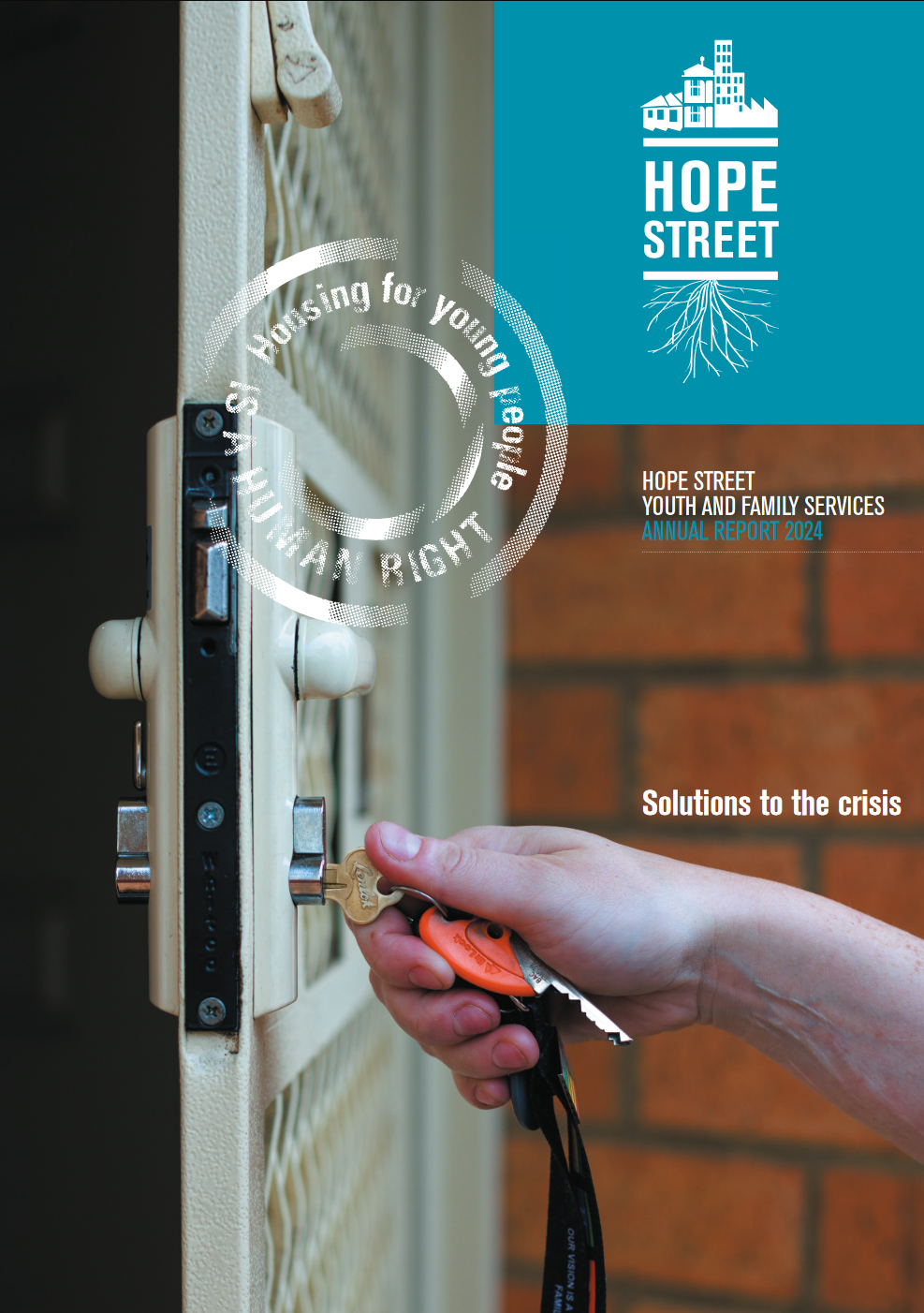Sam Rae MP sees impact of Hope Street in Melton!
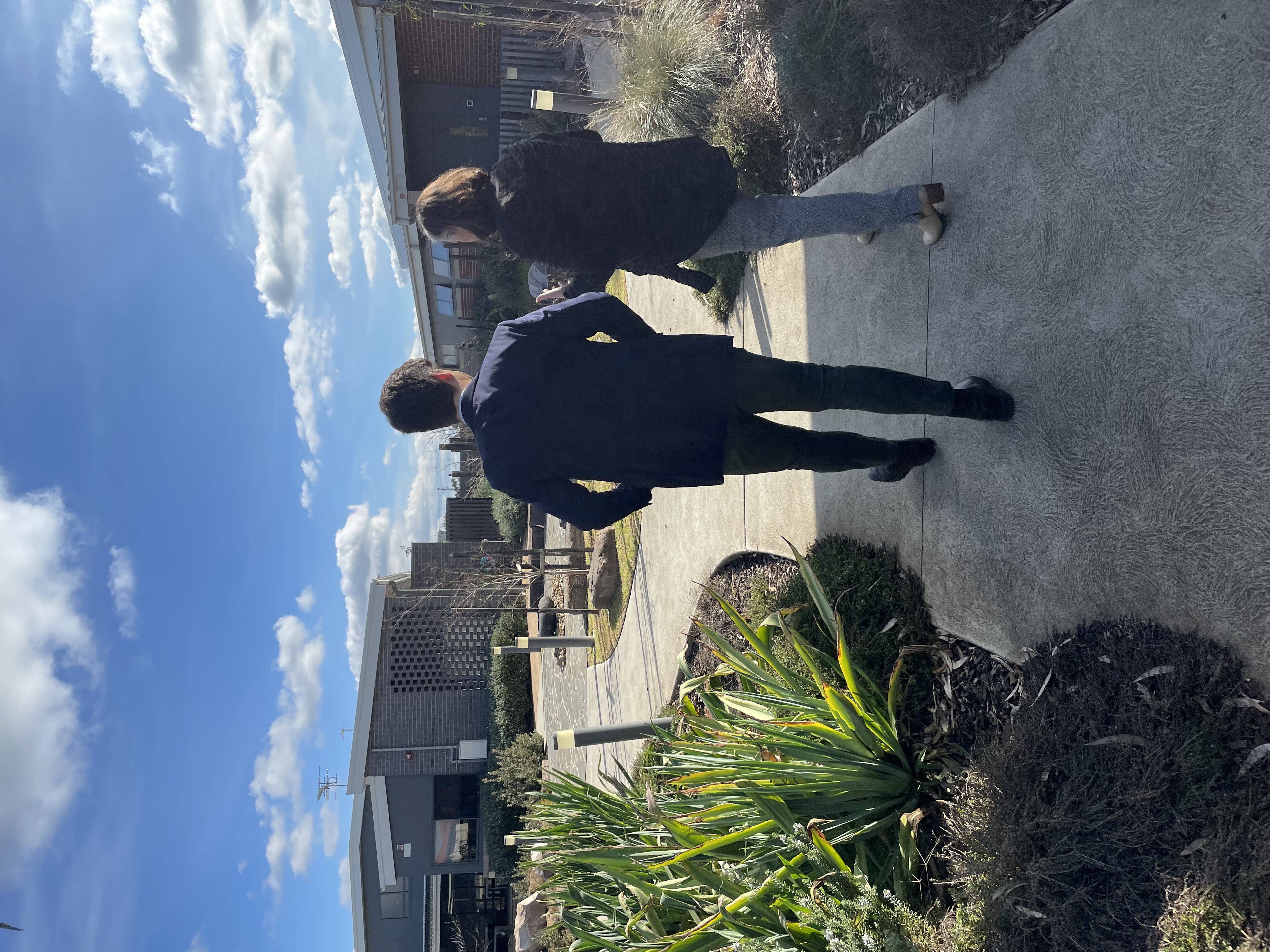
“The dedicated staff at Hope Street First Response Youth Refuge in Melton do an incredible job around the clock to keep some of the most vulnerable people in our community safe. The work that they do in providing a place to recover and rebuild is incredibly important. Visiting Hope Street in Melton reinforced my commitment to support their efforts.” - Sam Rae MP.
Federal Member for Hawke, Sam Rae MP has recently visited Hope Street’s First Response Youth Service Refuge in Melton to tour the facilities and see this nation leading response to child and youth homelessness operating in the local community.
The First Response Youth Refuge Service is vital for Victoria to provide high quality emergency frontline support and accommodation for young people (16-25) and their children experiencing homelessness. Hope Street’s well trained and qualified staff provide 24-hour support to young people and their children. It has been in operation since August 2020 and is a centre piece of place-based partnerships in the local community. Since establishment in 2018 (operating from an interim location), the First Response Youth Service has provided support to over 915 clients. For young parents, 94% have an improved connection to community services. Over 90% had increase in the level of safety of their children. One client Sarah expressed that, ‘Hope Street helped me navigate through difficult decisions I had to make. They helped me with baby things, food vouchers and moral support.’
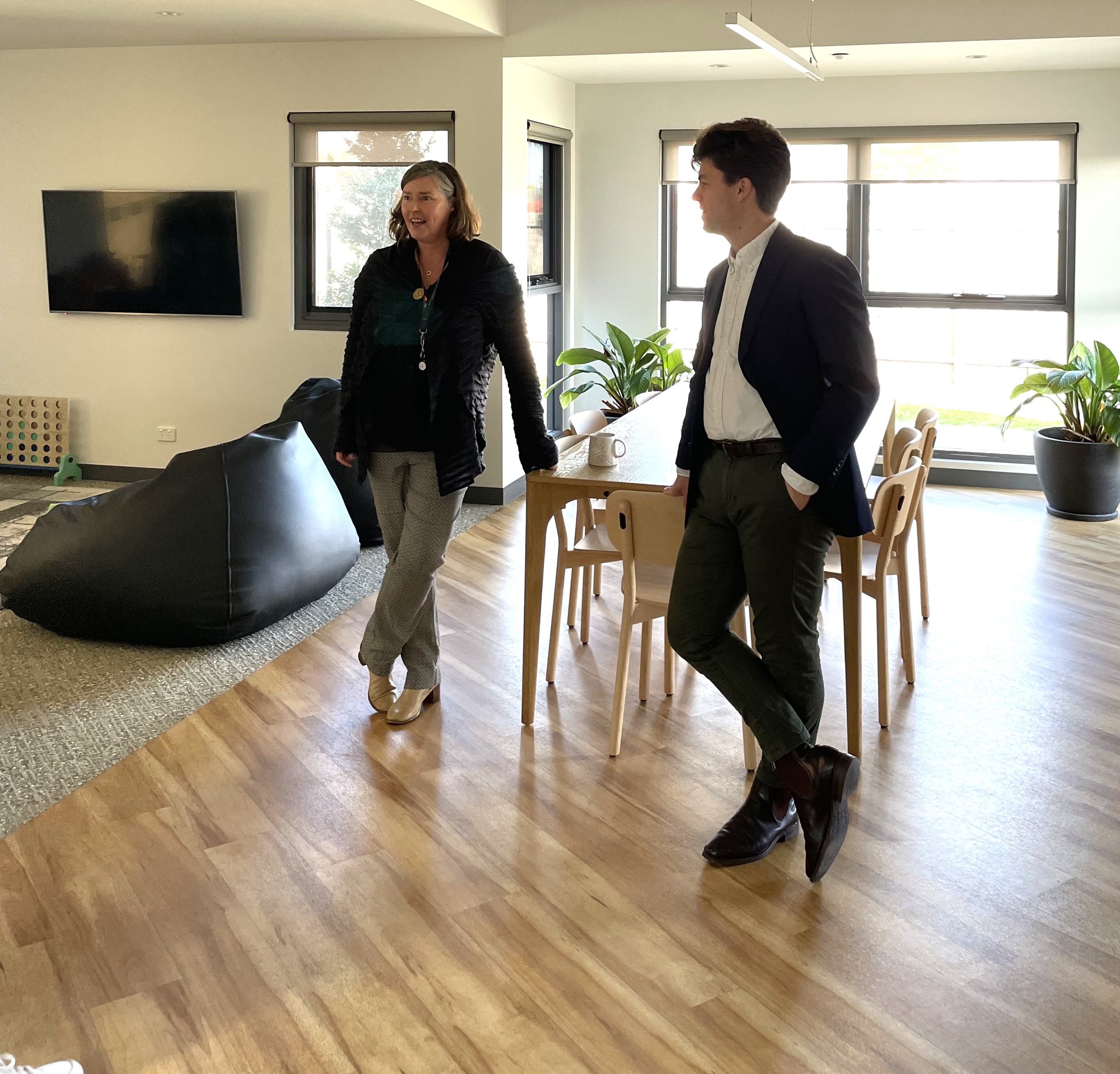
Sam was able to see the impact of well-designed solutions to homelessness with frontline service staff and discuss the realities facing vulnerable young people and their children. For those at risk of experiencing homelessness, a safe place to sleep, eat and live is their right. For young people and young families that have experienced the trauma of domestic and family violence, poverty,disadvantage and a housing crisis which has led to homelessness, the need for support to feel safe and secure is vital to addressing their needs within the community.
Sam was able to discuss how young people are supported by experienced frontline staff at Hope Street with Aoife, a Case Manager with experience in working with young people in Ireland and Australia. Sam was able to see first-hand how the First Response model includes key elements of an assertive mobile outreach service and a ten bed (including independent family unit) youth (16-25 years) supported crisis accommodation (refuge) with youth centred case management support. The importance of providing high quality accommodation for young people and young families in Melton at Hope Street was highly valued by Sam.
The First Response refuge is a modern facility, and its architectural design was shaped by extensive consultation and research. Unsurprisingly, the significant investment of time, money and therapeutic design in developing the refuge has resulted in a high quality, state-of-the-art refuge environment. It offers a safe and positive living environment for clients, is sensitive to trauma, and supports effective service delivery.
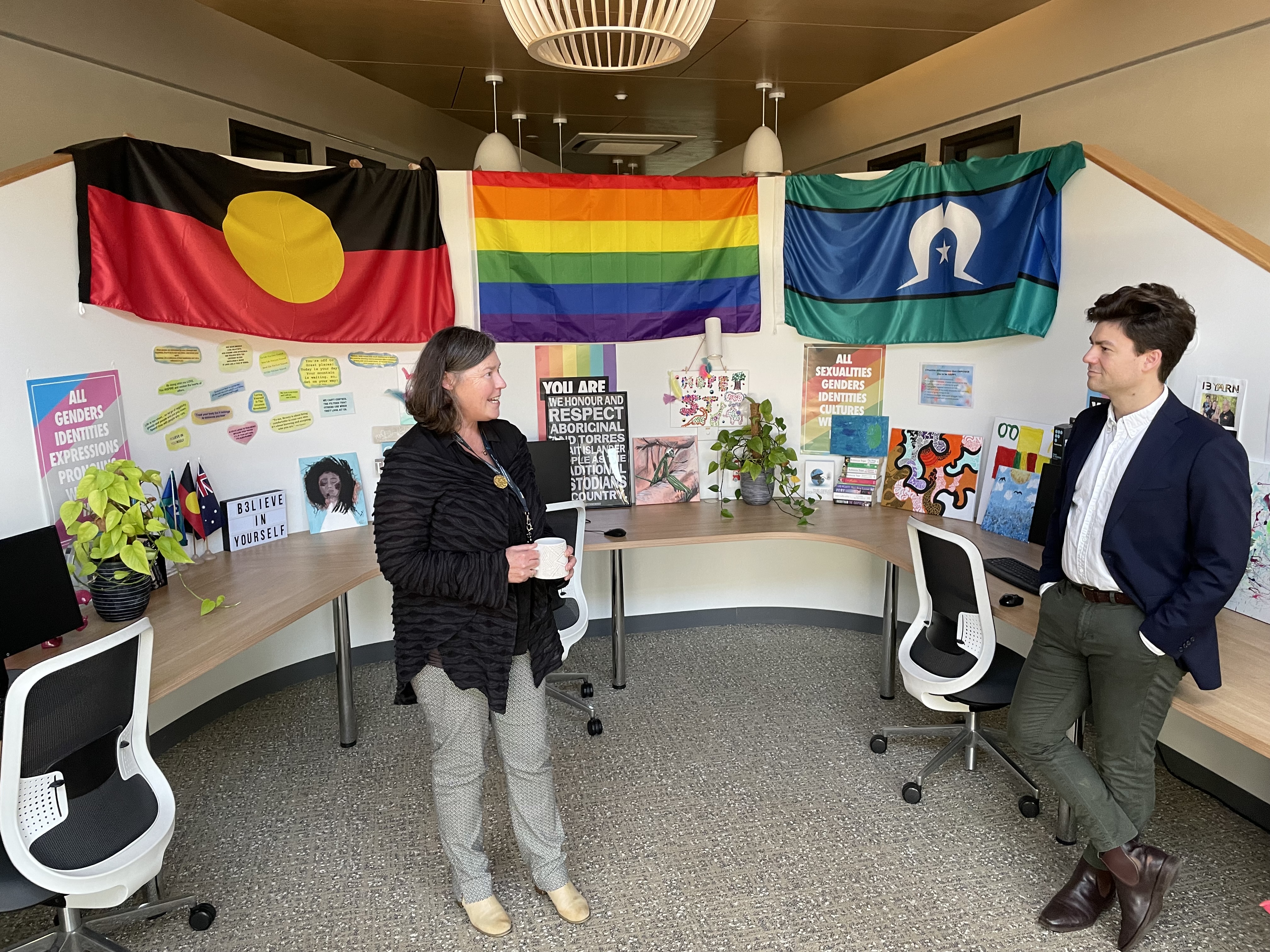
There is a communal study area and kitchen with full pantries and recipe books to help young people relax and feel comfortable to plan and make meals as a valued member of the household and as part of their skills development.
Sam’s tour included a walk through the gardens with water features and edible veggie patches. The site also features art therapy with an art room for young people to enjoy a peaceful place to be creative with paint, drawing and sewing.
Sam and his team were able to see how a large, well-lit recreation room provides comfort and entertainment with bean bags, musical instruments, toys, a game console and television. Such a place is important for young people that have experienced trauma as they can enjoy age-appropriate activities in a safe and comforting space.
This nation leading First Response Youth Service is a quality example of how to support young people and young families in crisis to achieve stability, a sense of security and ways forward in changing their situation and working towards their goals.
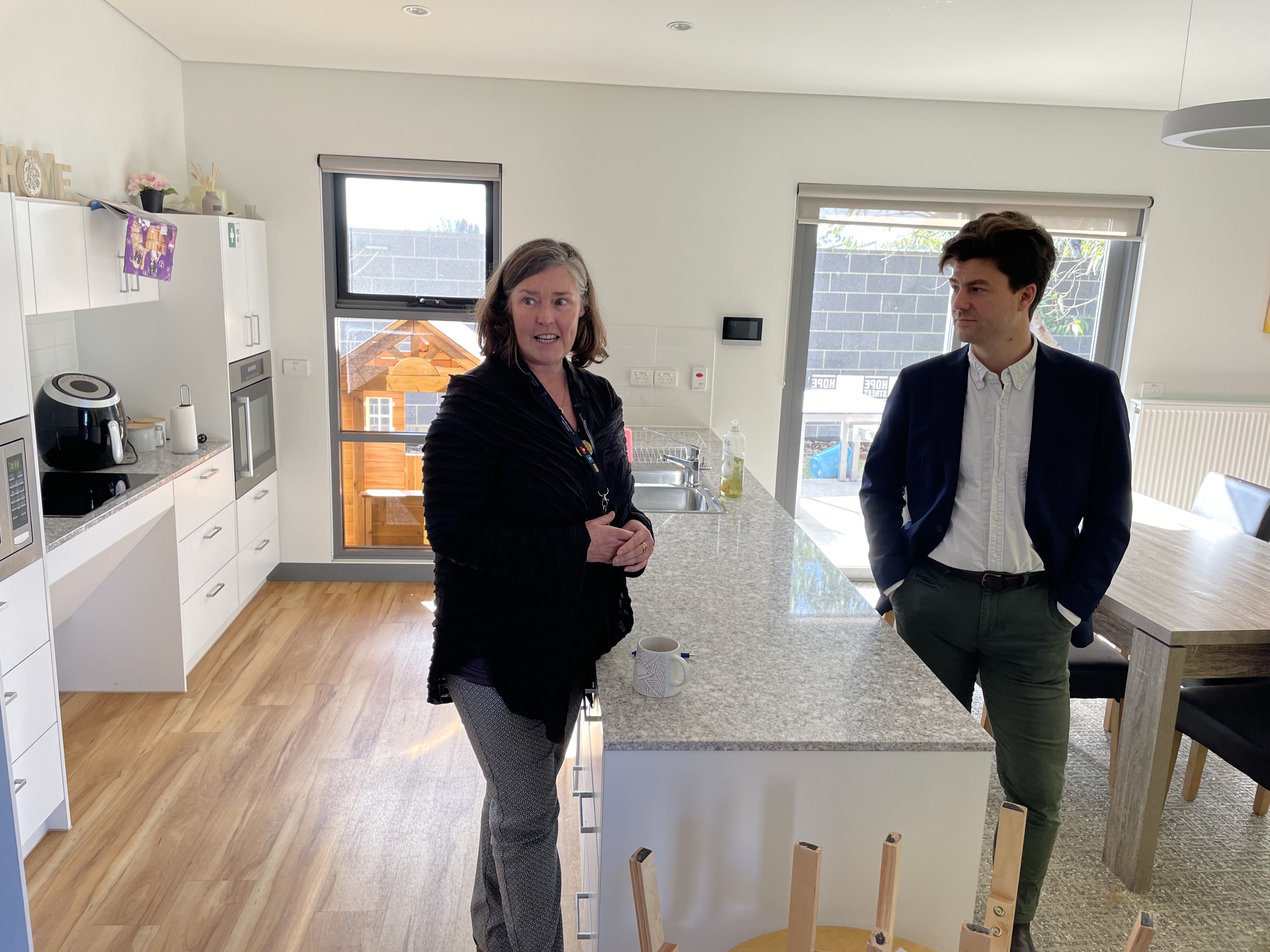
With addressing domestic and family violence a priority for the Albanese Government, Hope Street was able to showcase to Sam Rae MP the importance of high quality, trauma informed, youth specific accommodation and wrap around support and the positive impacts this has on young people and young families as well as the wider community.
Hope Street upholds that housing is a human right and that all young people and their children have a right to a safe place, free from abuse and neglect so that they can thrive and achieve their goals. Hope Street’s philosophy is that resolving homelessness is the responsibility of federal, state and local governments; the community, families and individuals. Hope Street believes that young people and their children have a right to safe, secure, affordable housing and to be treated as equal citizens in our society.
Wear It Purple Day 2024
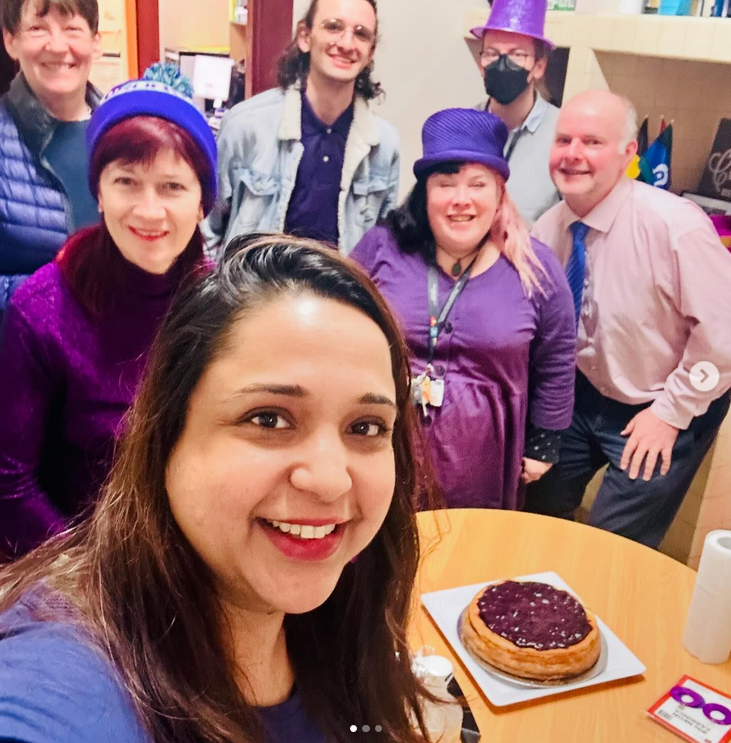
Celebrating rainbow young people for Wear It Purple Day!
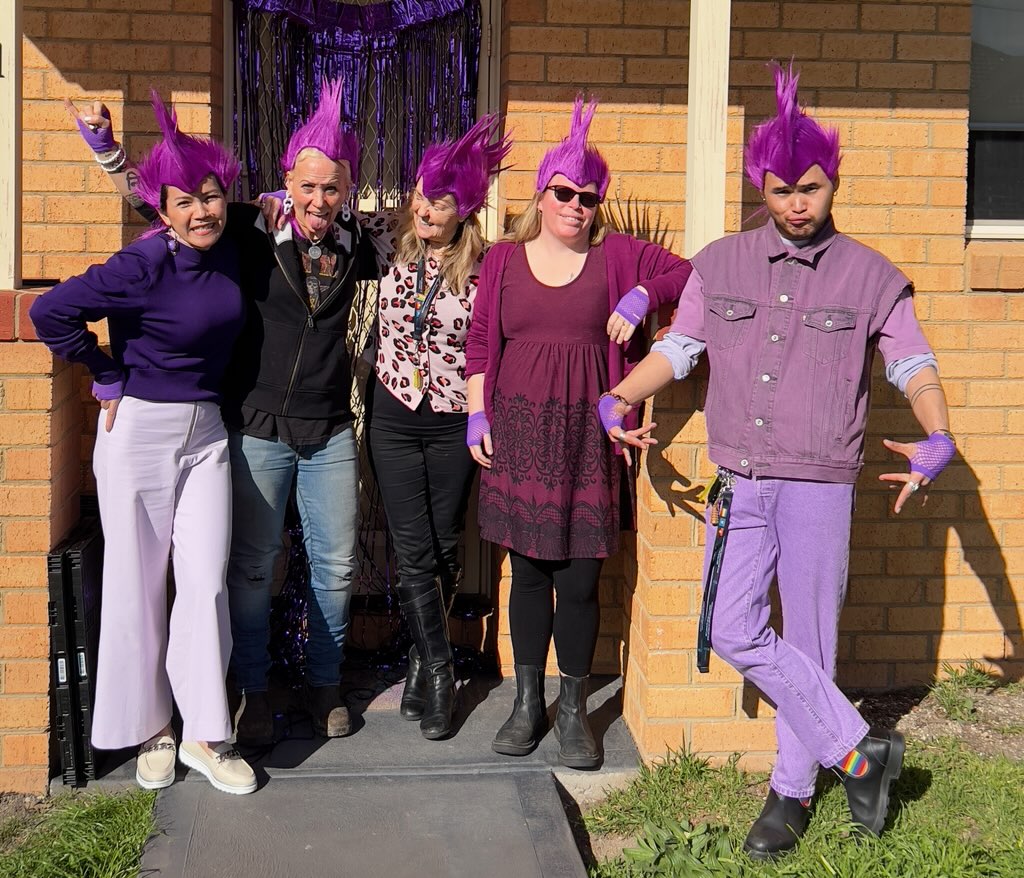
Hope Street celebrated Wear It Purple Day across the different service locations, as well as at the Pride Centre in St Kilda. Wear It Purple Day strives to build supportive, safe, empowering and inclusive environments for rainbow young people.

There is a higher risk of experiencing homelessness for rainbow young people. Hope Street upholds that all young people have a right to safe and secure housing and deserve to be celebrated and supported by the community.

Hope Street activities included wearing it purple, enjoying purple treats, as well as fostering conversations about the importance of delivering high quality inclusive accommodation and services.
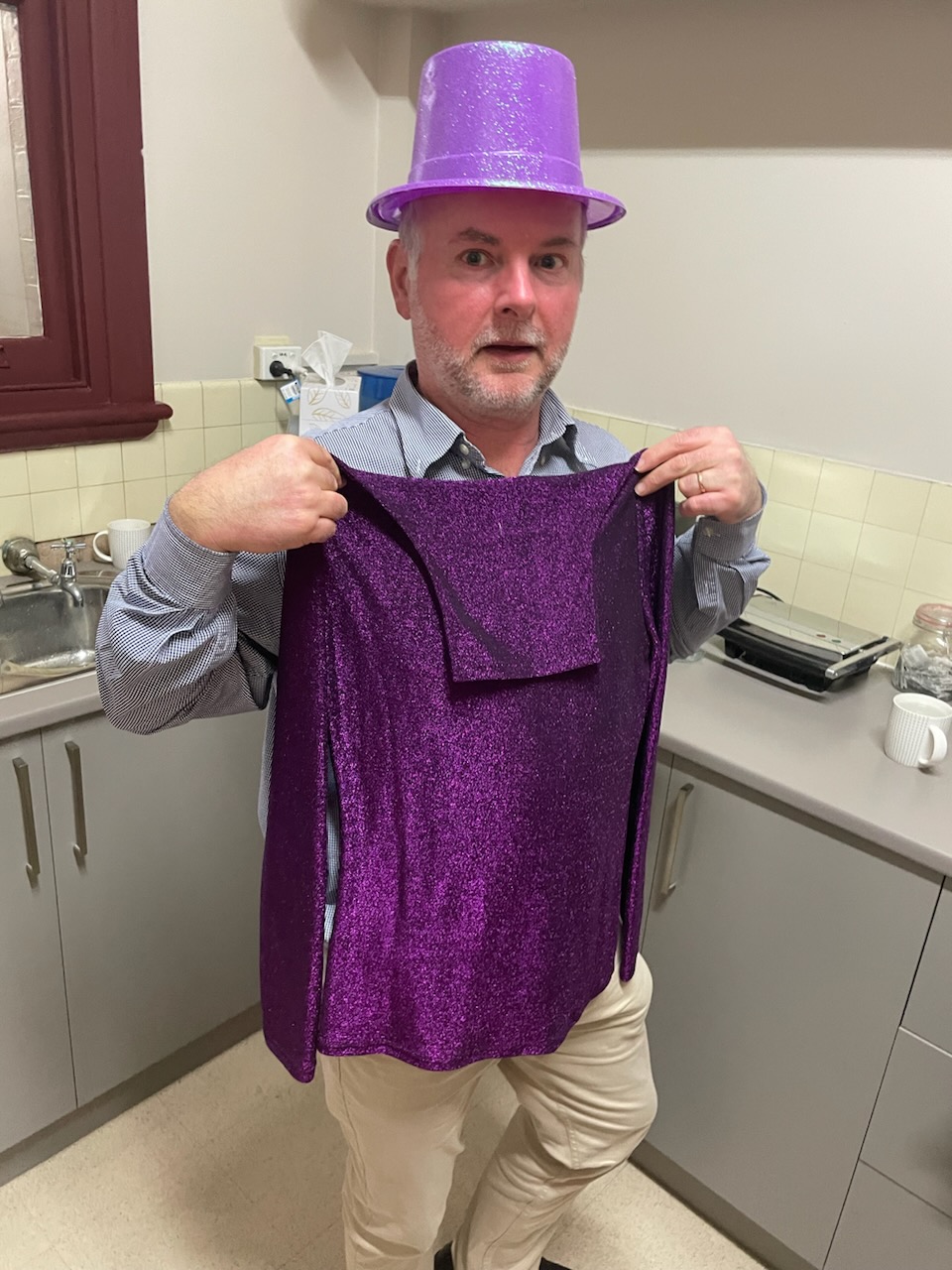
Hope Street also expanded its resources with additional queer themed books for our youth inclusive spaces. Hope Street is committed to enhancing inclusivity of rainbow young people so they can experience safety and a sense of belonging.
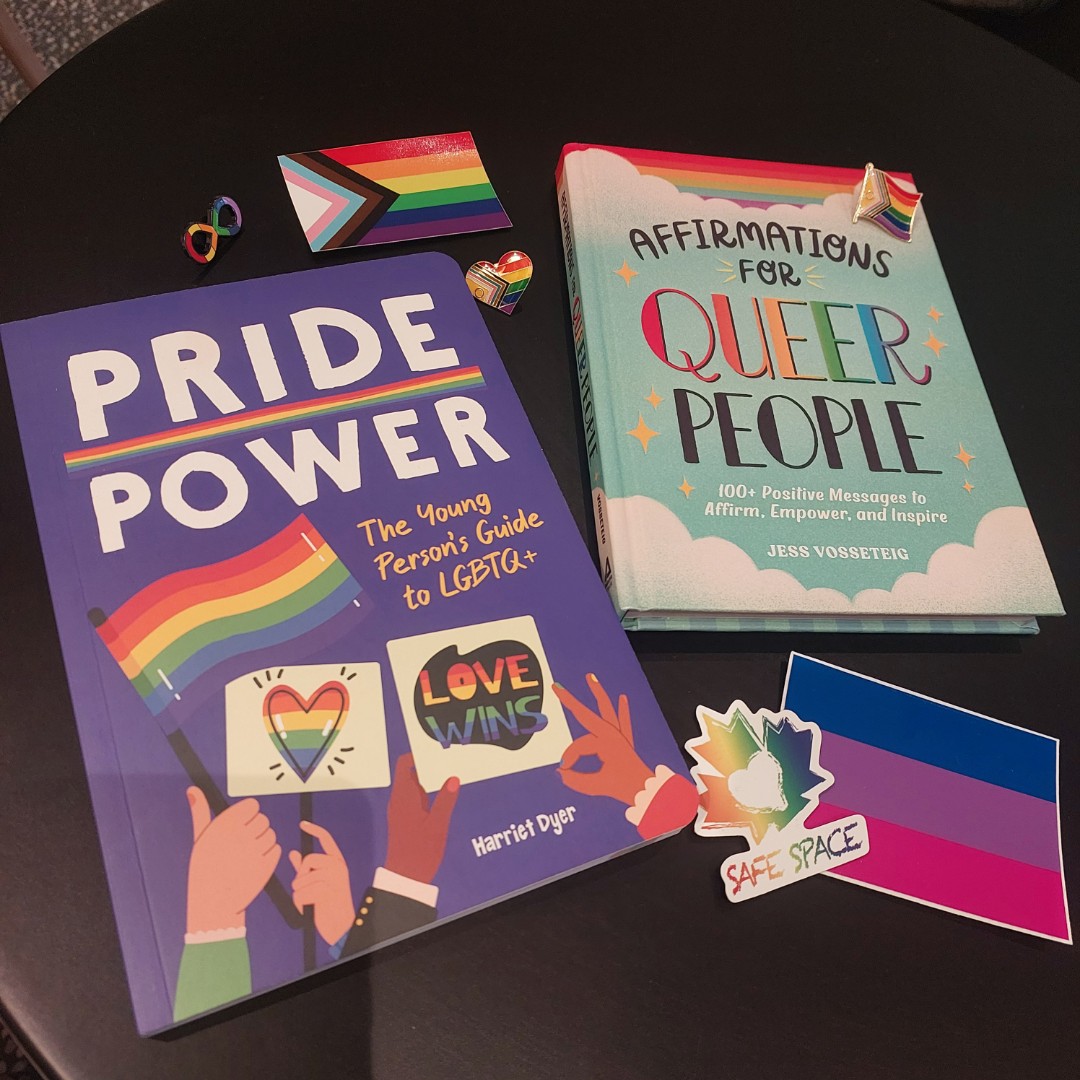
Hope Street matches this year’s theme, ‘Your Passion, Your Pride,’ all year round by ensuring all our youth refuge spaces are inclusive and celebrate queer young people.
Ruby, proud Wemba Wemba, Yorta Yorta and Mutthi Mutthi woman, is on a meaningful journey through her placement at Hope Street Thomastown. Her cadetship combines academic pursuits with practical experience, providing financial support and a unique opportunity to service her community.
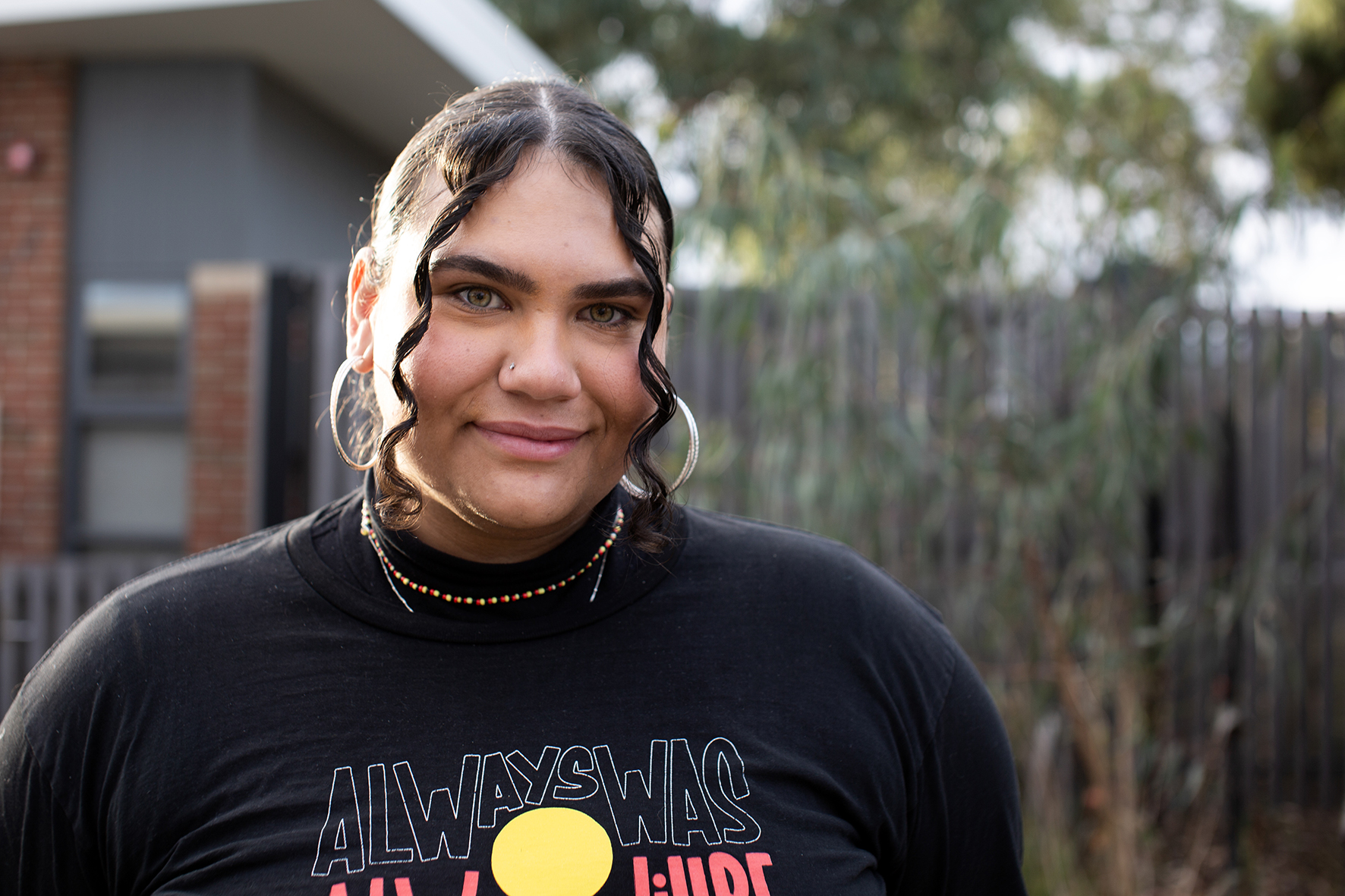
Ruby’s decision to pursue a cadetship was driven by the need to fulfil a placement requirement for her Bachelor of Youth Work and Youth Studies at RMIT.
She saw the Warumilang Program Cadet program as an ideal way to merge her placement needs with financial support.
I thought that combining them was a great option. That way financially I would be supported.
That was a big thing for me, being able to manage financially while completing a placement.
She discovered the program after completing her last placement for her degree. Originally placed at Hope Street’s Brunswick location. She soon realised that moving to the Thomastown Refuge would be a better fit.
I am now at Thomastown and I am really enjoying it. I have had the opportunity to get out and about to meet with clients and case managers. They have really showed me the ropes.
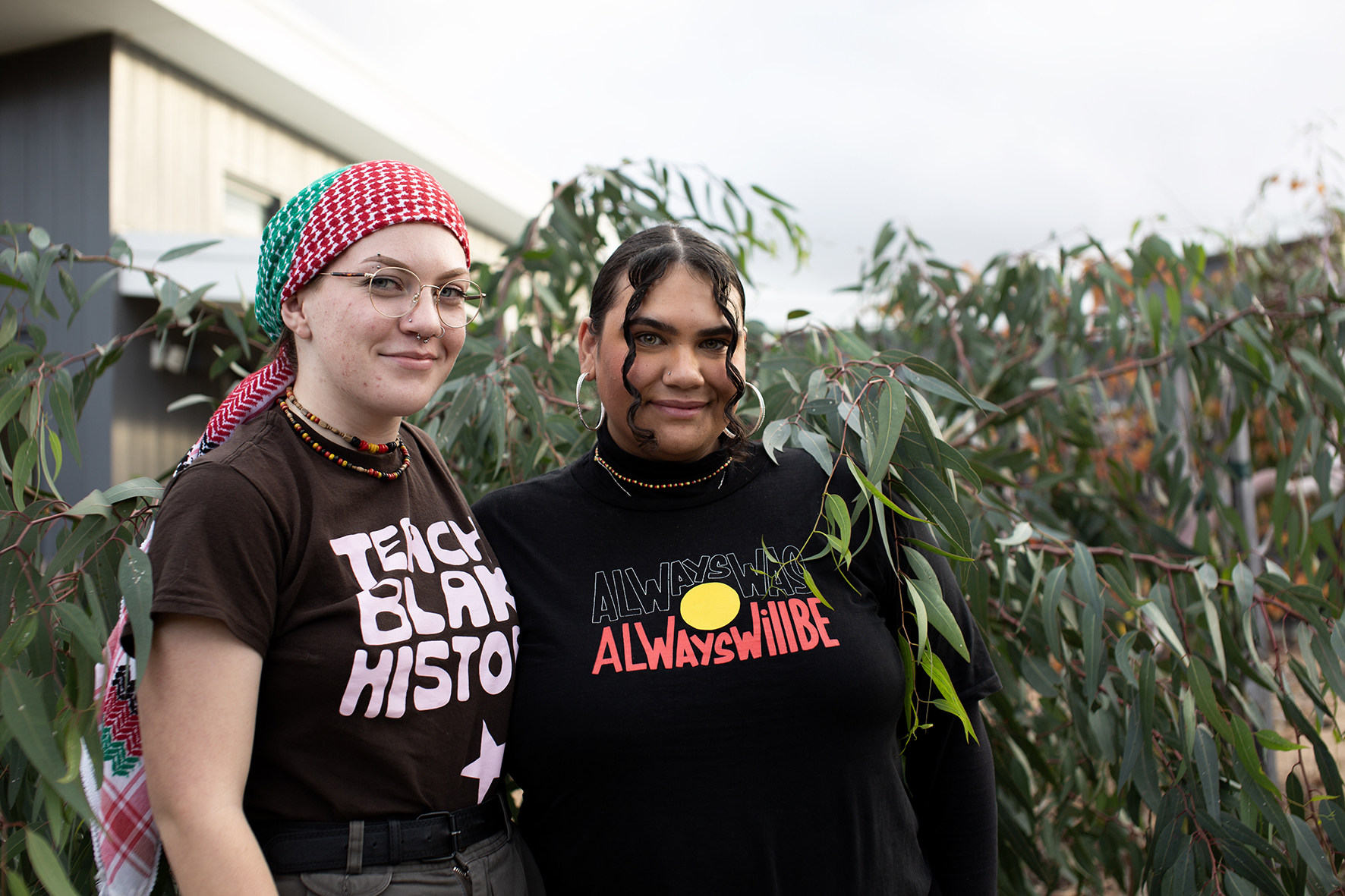
Ruby has found a passion for working in long-term transitional services through her cadetship. The opportunity to meet young people who have experienced homelessness regularly has allowed her to build rapport and trust, essential elements in effective youth work.
I have got to meet young people regularly over and over again – building rapport and a sense of trust with them.
One of Ruby’s biggest challenges has been balancing her job responsibilities with the cultural load.
Especially coming into workplaces where you are educating everyone and introducing them to cultural frameworks.
She has found significant support from the Indigenous Centre at RMIT. Where she serves as a First Nations representative, advocating for her community.
We have a great centre for mob at RMIT, throughout my cadetship they have been a great support for me.
AFL SportsReady has provided ongoing support and advocacy, enhancing her cadetship experience.
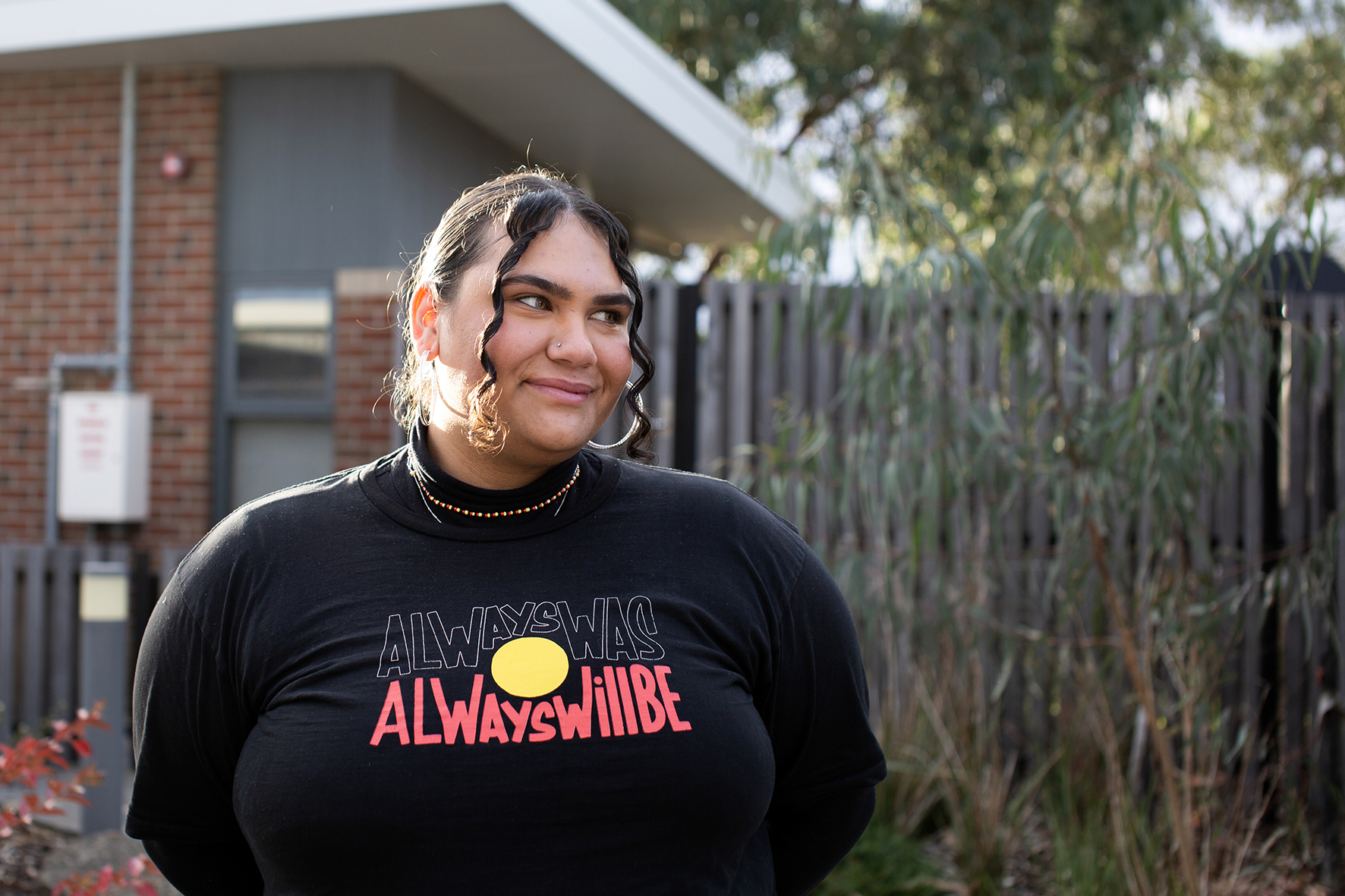
Studying youth work and youth studies, Ruby has always been driven by a desire to give back to her community.
Being a young First Nations woman,
I have always wanted to give back to my community and my people
– working alongside young First Nations people by helping them thrive, develop and grow.
Ruby is passionate about challenging the generalisations and stereotypes often associated with First Nations people.
As First Nations people, we are often generalised and stereotyped. I want to show them that we are none of those things and that is not what young mob are destined for. They are destined for bigger things.
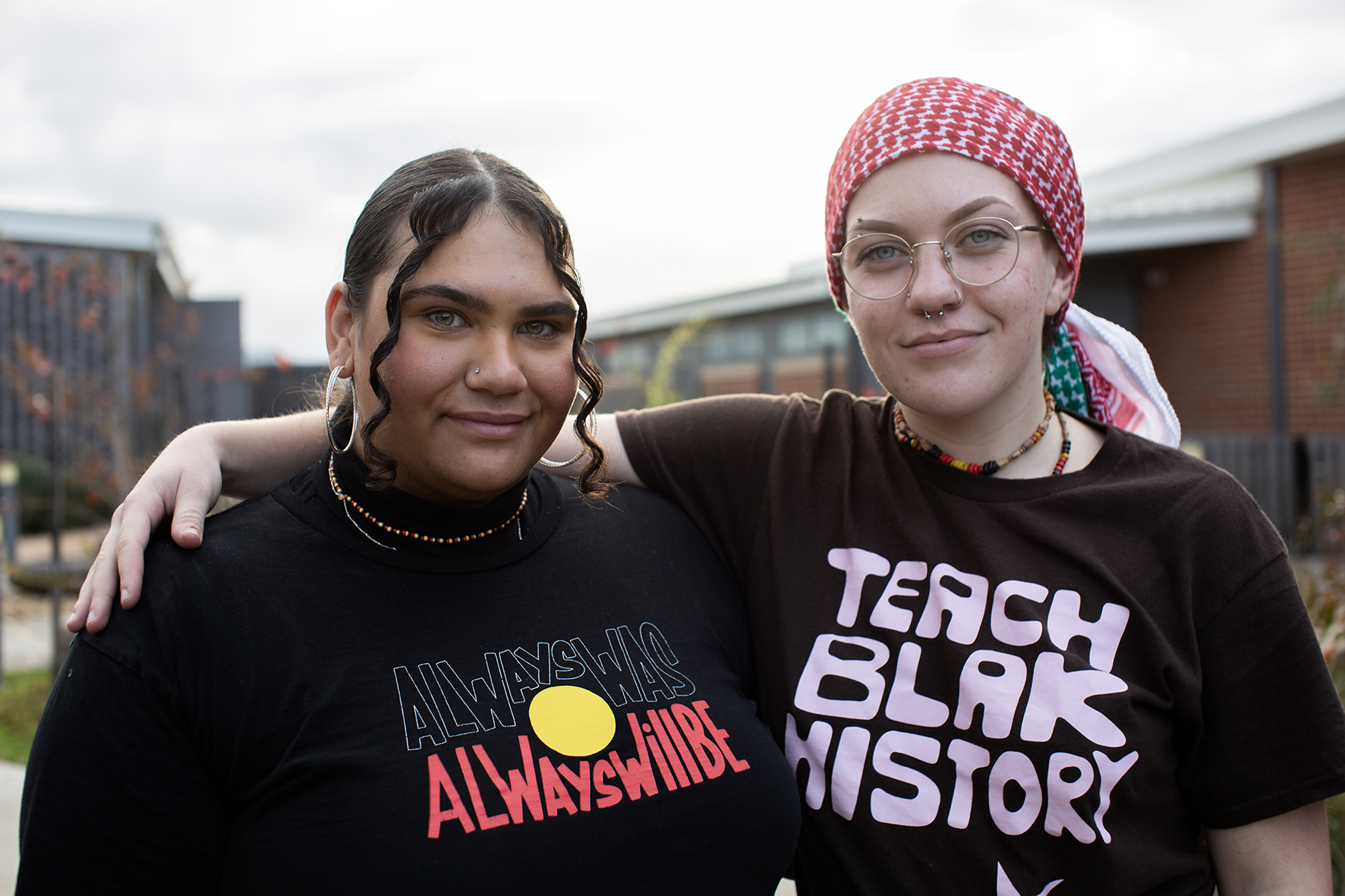
Her cadetship highlights the power of combining education with practical experience, cultural advocacy and community service. Her dedication to empowering First Nations youth and breaking down stereotypes is inspiring and vital for the growth and development of the wider community.
Ruby’s story highlights the importance of work placement programs offered by AFL SportsReady in partnerships with organisations like Hope Street Youth and Family Services.
Cadetships provide young people with the opportunities and support they need to succeed.
Work at Hope Street Youth and Family Services Thomastown makes a tangible difference. Demonstrating the significant impact that dedicated, culturally aware professionals can have in youth work.
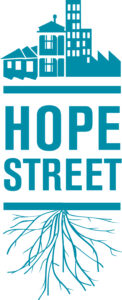
Hope Street Youth and Family Services is a leading specialist in youth homelessness in Victoria, extending its reach from Melbourne’s Northern and Western regions to non-metropolitan areas lacking dedicated services.
With over 40 years of experience, Hope Street offers targeted and holistic programs for young people, including young families. These include:
– Outreach support to assist those at risk of homelessness in meeting immediate needs and connecting with services
– 24/7 crisis accommodation with specialist support
– Supported transitional accommodation focusing on skill development, education, training and employment
– The Hope to Home program, aids young people and families in securing private rentals
Hope Street also advocates for systemic improvements and contributes to research addressing the structural causes of youth homelessness.
During Homelessness Week 2024 the Hope Street team; Sue Scott acting CEO, Gary Humphrey, Aoife Fitzpatrick, Jamileh Hargreaves and Katie Hooper attended the Victorian Homelessness network event - Houses at Parliament. 6000 origami homes were on display at Parliament of Victoria as part of Homelessness Week 2024!
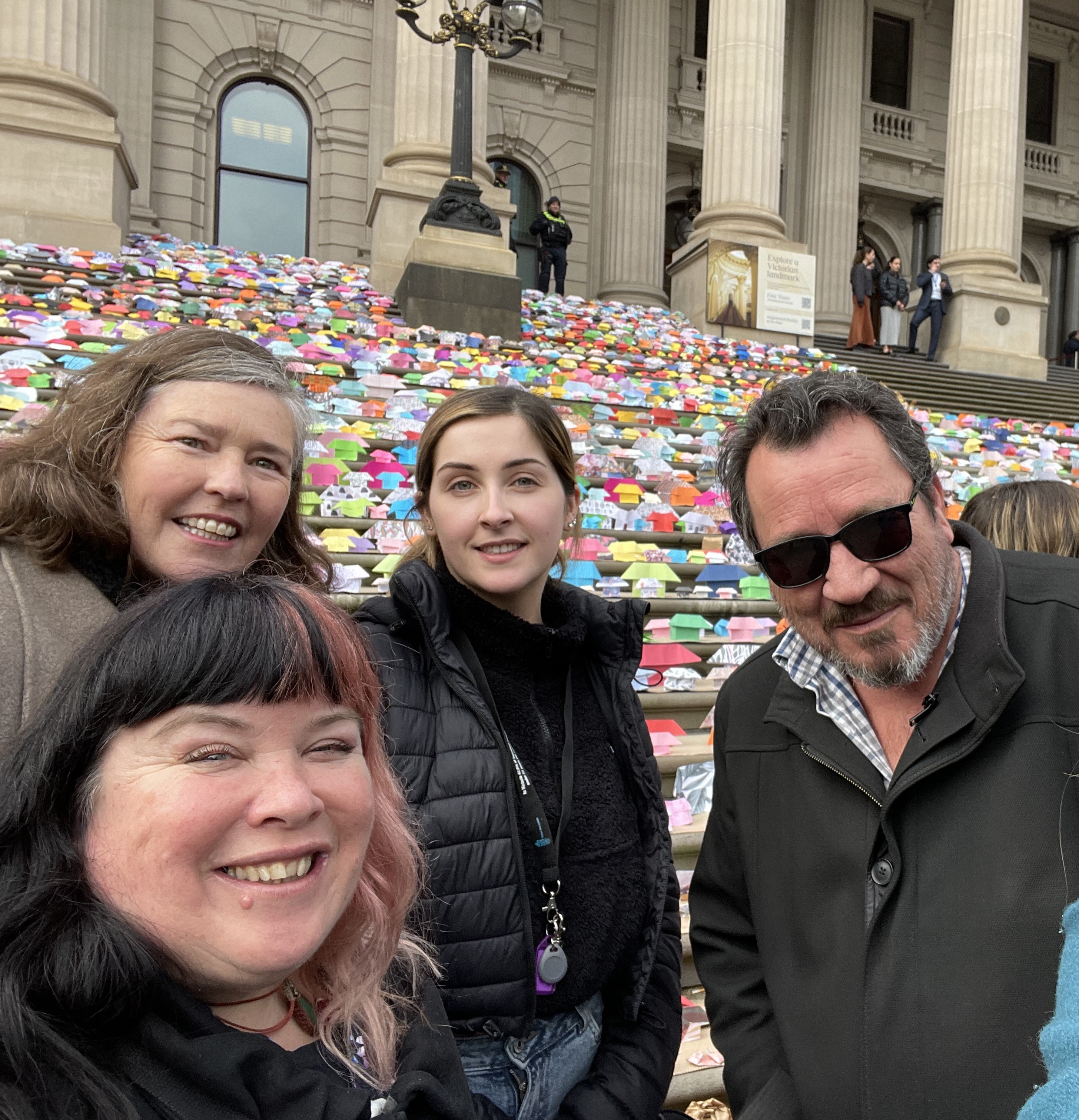
This is a 10 per cent representation of the 60,000 more social houses needed to end homelessness in Victoria.
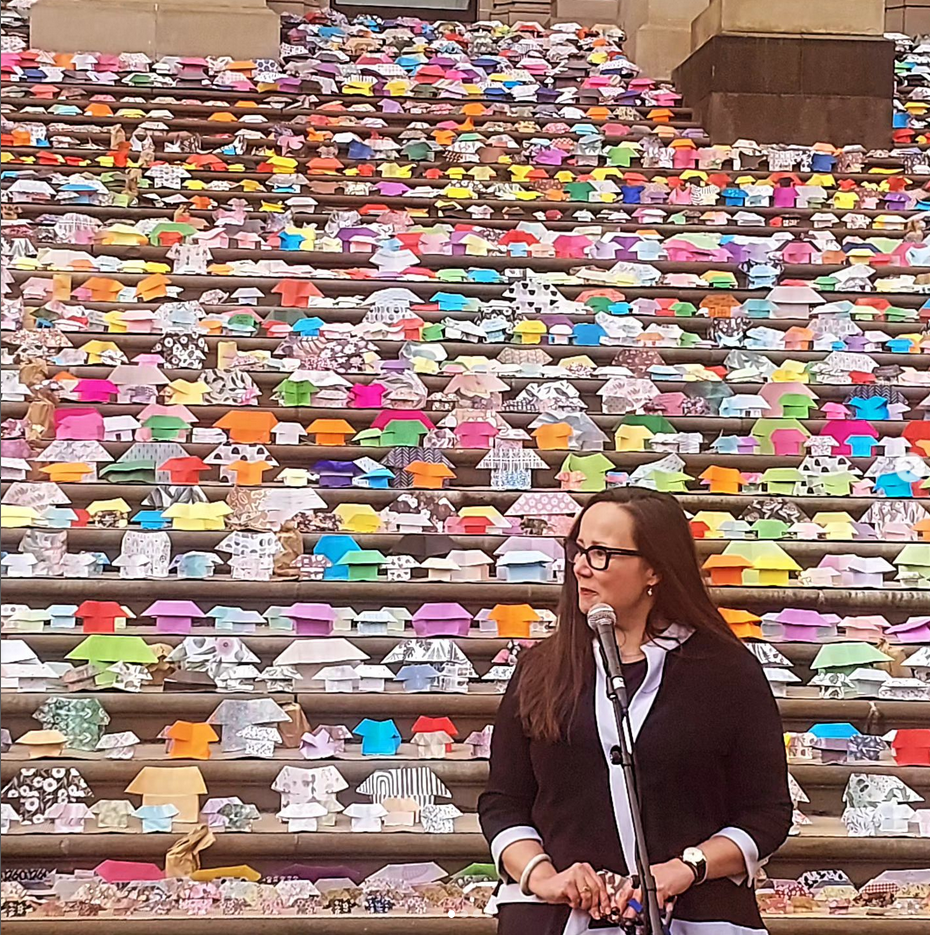
The event was also attended by the Council to Homeless Persons, CEO Deborah Di Natale and her team, Housing and Homelessness Minister Harriet Shing MP as well as Nina Taylor MP, Ben Carroll MP, Steve McGhie MP, and passionate advocates with lived experience, members of the public about housing solutions, community housing providers, homelessness support agencies and leaders in homelessness and housing policy.
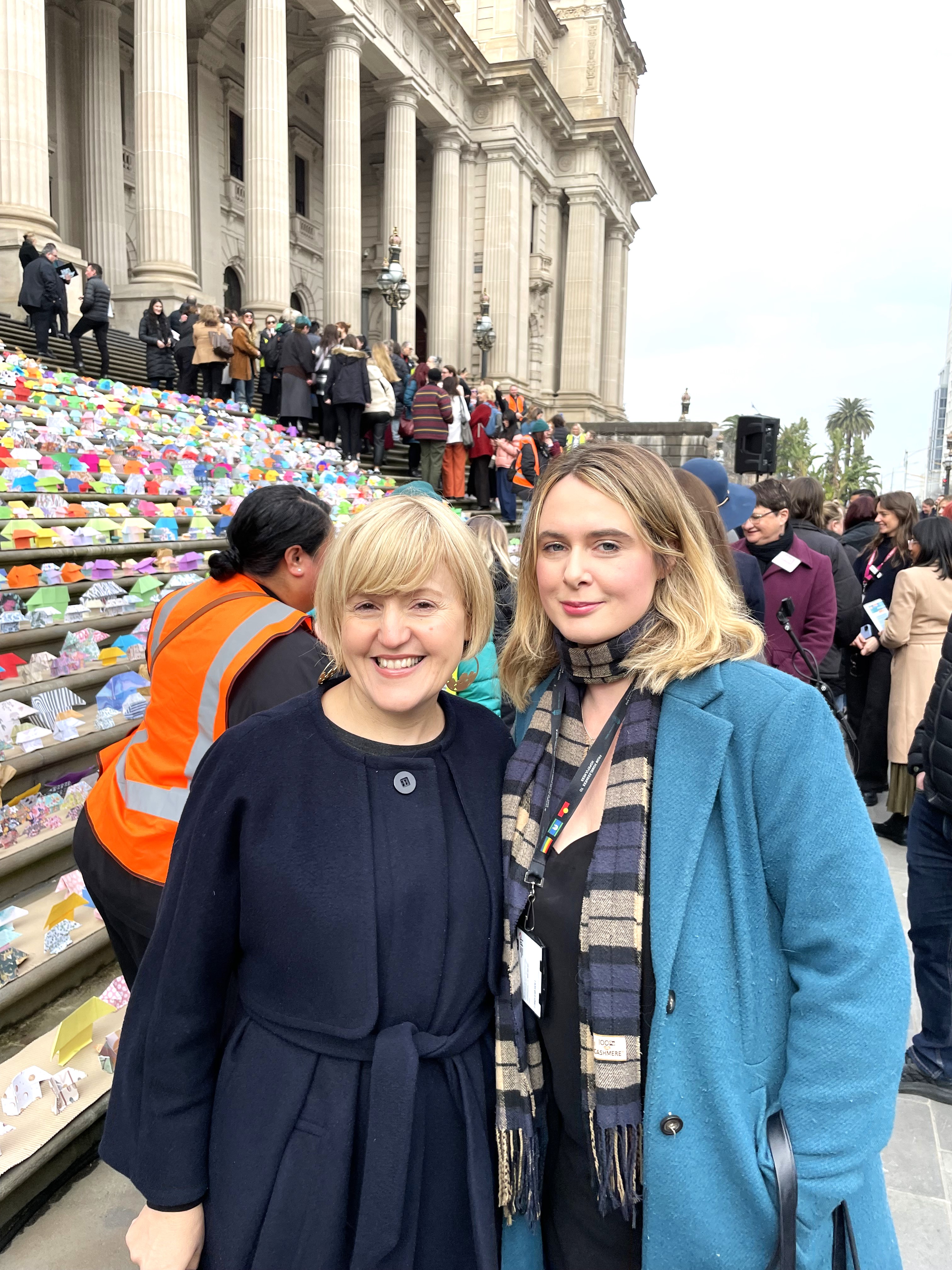
Hope Street were able to have valuable discussions with Council to Homeless Persons CEO Deborah Di Natale about the importance of advocating for youth and child housing solutions.
As the community gathered together on the steps of Parliament, Hope Street were able to stand in solidarity with industry leaders and lived experience advocates on the urgent need for more social housing.
It was also a highlight speaking with Nina Taylor MP about housing and homelessness as a priority area for the Victorian Government.
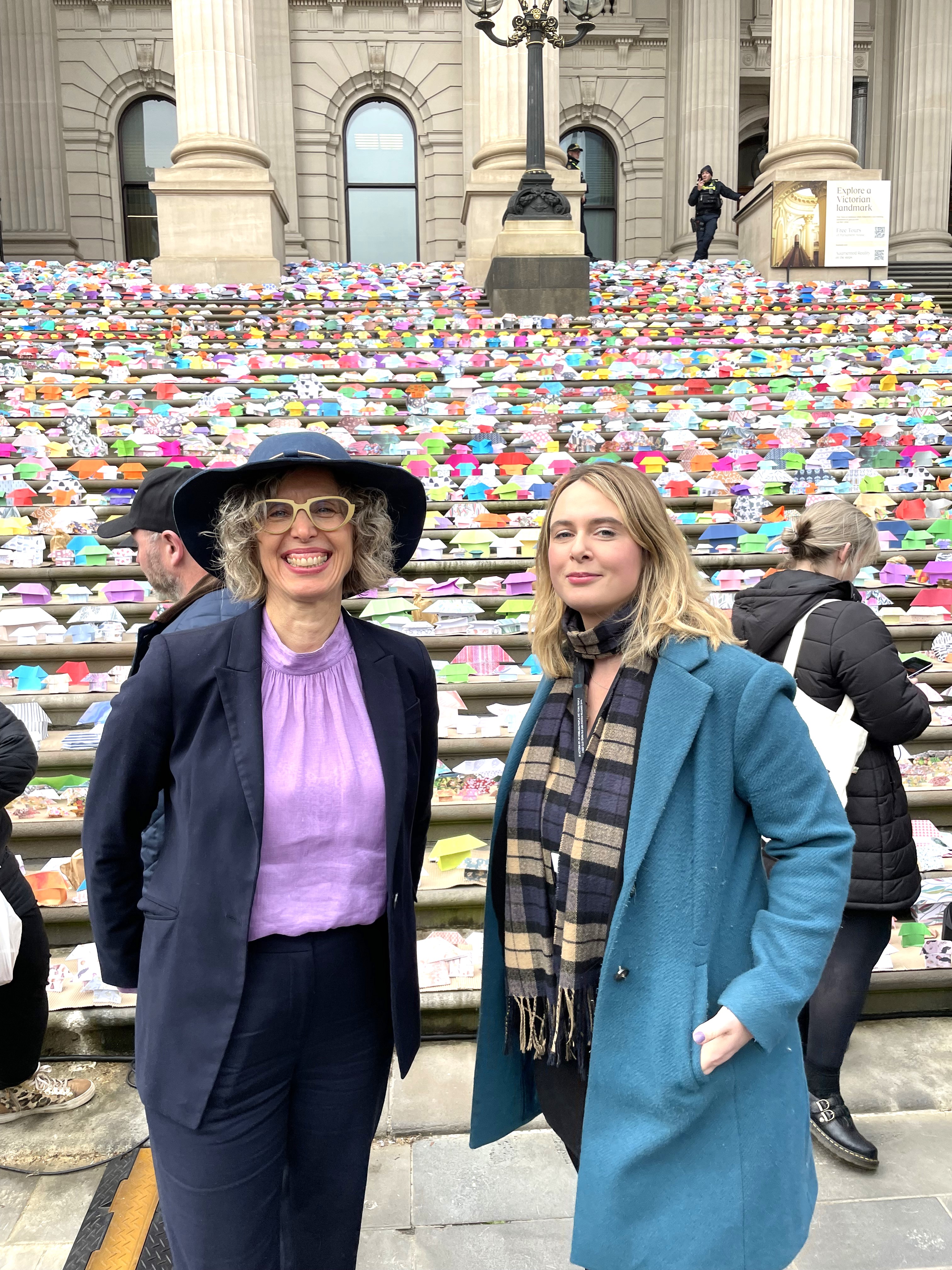
Through ‘Homeless Action Now’, Hope Street continues to provide dignity and support for young people and young families experiencing homelessness. Ensuring that young people and young families have access to housing is a priority for Hope Street and this is underpinned by community collaboration and Aboriginal cultural safety.

Hope Street will continue to advocate as we strive to achieve its vision for a society in which all young people and young families have a safe place to call home.
Partners eNewsletter
Sign up to have our free quarterly Partners eNewsletter delivered to your inbox and learn more about how Hope Street and its partners are supporting young people and young families who don't have a safe place to call home.
Upcoming Events
Latest News
Popular
Featured Stories
Homelessness - Facts & Stats
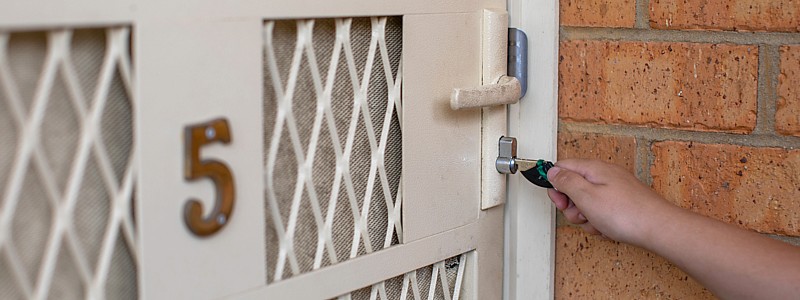
FEATURED PILOT PROGRAM: Hope to Home in Whittlesea
Many young people face obstacles when trying to secure stable accommodation due to no rental history, lack of affordable housing, and no employment to sustain rental leases. The Hope to Home in Whittlesea pilot program will address these issues by:
- Facilitating the transition of up to 30 young people (and their children) from the Hope Street in Whittlesea program or Whittlesea Housing into 1 and 2 bedroom units
- Providing case management once they secure private rental of these units
- Helping these young people maintain their tenancy, employment, education and training, and community connections
- Engaging the support of community stakeholders including local businesses to address barriers contributing to youth homelessness
Please contact us if you would like to become a partner and support at risk young people and young families.


